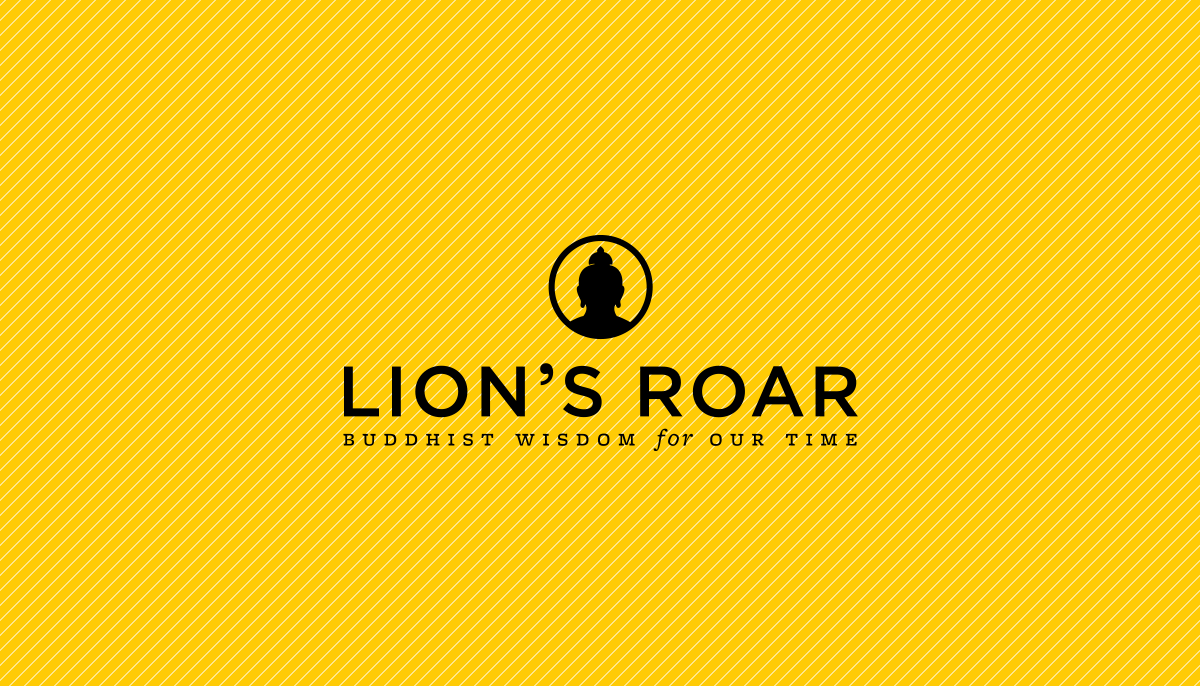Karen Maezen Miller on being a Zen priest and a mother in a modern world that won’t confront the “Zen under the bed”.
Once I wrote a book about motherhood. People sometimes recommend it to others by saying, “Don’t let the fact that it’s written by a Zen Buddhist priest scare you away.” To be honest, I know a fair number of Zen priests who are petrified of parenthood, so the misjudgments are mutual.
Still, it makes me wonder, “What kind of an encounter with a Zen Buddhist priest would scare you?” Then I realize that it is likely to be the kind of encounter my daughter has had with menacing nighttime monsters—the kind under the bed.
That’s the kind of Zen—and, moreover, the kind of Buddhism—that I see proliferating these days: the imaginary kind. When I hear the calls to make buddhadharma more accessible to the Western mind, I wince. When I see the attempts to adapt the teaching to make it relevant to modern life, I wail. Buddhadharma can’t possibly be made more accessible than it already is, because it is what is. How can something so inexpressibly obvious be adapted into something more obvious? The original teaching is so totally immediate that it makes comparisons of relevance, well, irrelevant.
I wonder if by “accessible” we mean “convenient” and if by “relevant” we mean “popular.” Modern life is already so overfed with convenience that it’s killing us; we are so addicted to the poison of popularity that we are spiritually starving. What’s lacking is not a modern method or a fresh spin, but pure and simple practice. Practice!
And to find that, you have to look under the bed. You have to sweep away the dust of conceptual notions and the accumulations of indolence. You have to turn on the overhead light and come face-to-face with your ego fears. Do that within a sangha, or practice community, and you are comforted and emboldened like a child in the night when a mother lifts the bedspread and reassures, “Here, honey, open your eyes and see for yourself.”
Of course, I’m talking about the practice of meditation, which is so terribly inconvenient and unpopular these days, although it’s the only practice Buddha practiced. It’s so very less attractive, for instance, than the practice of reinventing Buddhism, which seems to require just a weekend or two at a hotel seminar, a night in the high desert, or more accessible still, a webcast led by the most popular television star in the world. These activities may have some beneficial outcome, but they are not the benefits of practice that the Buddha so wholly embodied and urged each of us to experience for ourselves.
From time to time I run across something that makes me think, “Wow, maybe meditation is going to catch on after all.” A well-publicized testimonial about meditation from a music producer, filmmaker, or television comedian brings beginners to the doorstep of the Zen center where I practice. No matter what the motivation, there are always plenty of first-timers. They might read a book, buy a magazine, even take a class—and never meditate again. It’s the idea of meditation that seems to be spreading, not the practice. Now we have teachers devising a Buddhism without meditation altogether, fashioning a study that is more appealing to the modern seeker, or so the reasoning goes.
By now you might be wondering what all this has to do with parenthood, and I am too. In fact, I wonder it daily. When I was given the chance to write this commentary, it seemed fitting that I would provide insights into parenting, but as I see it now, the practice of Buddhism is far more endangered than the practice of parenthood, and here’s why.
We parents come to our Buddhism spontaneously and quite unintentionally. Almost none of us would even call it buddhadharma, but it is. From the get-go we are engaged, body and mind, in the most intense ego battle of all time. We are thrashed—indeed, we are slain—by the raw immediacy of our children and their insistent demands for care and attention. We are carried through this bloodbath by an encompassing and intimate love that is effortless and uncontrived. Repeatedly experiencing life’s difficulties—often many times before dawn—we confront our egos as the source of our own suffering, and observe the impermanence of all phenomena. Then we make macaroni and cheese for the billionth time.
A day in the life of a mother is a short course in the complete, three-point teaching of the Diamond Sutra: realize no-self, realize no-other, and perform meritorious deeds. Parenthood is the most transformative experience that most of us mortals will undertake during our lifetimes, but the transformation does not occur without committed daily practice.
So I’m not too concerned about parents. That is, until I see news reports like the recent one about the booming job market for nighttime nannies to relieve the inconvenience and drudgery of sleep interruption. Or the one about the popularity of Chinese-language tutors to give toddlers a competitive head start on globalization. Or all the ways in which we seem to be outsourcing and reinventing parenthood to be more accessible and relevant to modern life. It looks like parents can be as deluded about their practice as we Buddhists can be about ours.
All that aside, I know I shouldn’t fret about the state of Buddhism. I shouldn’t worry about modern parenthood. I should get under the bed and take care of it myself. As my daughter insists, and as my practice reveals, there is something to be seen there—the truth that completely clears all fear, confusion, and pain. Only when I make a regular practice of turning on the light and taking a look can there be peace of mind.
